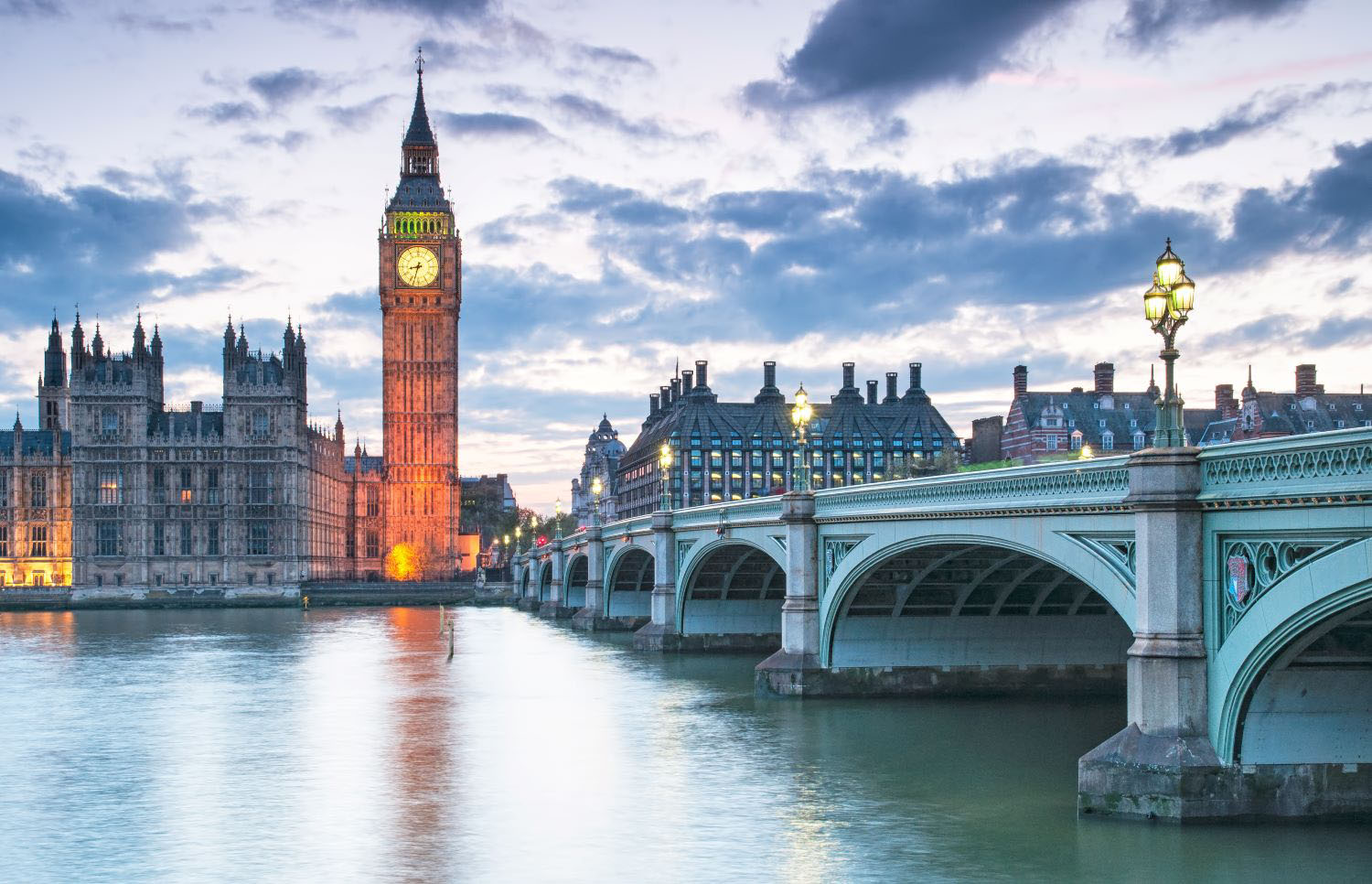With the UK General Election just two weeks away, we know that international development is a high priority issue for our blog-reading voters. So that you don’t have to, we have examined each of the main party’s manifestos and analysed their international development commitments. As with the framework we use in our Commitment to Development Index, we go well-beyond aid in comparing the contribution of different policies to development. We offer some comments on the value of the proposals but mainly intend this blog to bring together the policies relevant to development.
The first consideration is that the parties frame their development commitments in different ways. Two years ago, the Conservatives made a case for foreign aid based on protecting our national interests by building a safer, healthier, and more prosperous world. This year, there’s no mention of national interest, and the emphasis is on a post-Brexit world, where foreign aid helps “promote our values” and positions the UK as a beacon of freedom and human rights. The Labour Party through “new internationalism” pledges to reset relationships with countries in the Global South, based on principles of redistribution and equality, a small shift from 2017 when they promised redistribution, social justice, women’s rights, and poverty reduction. The SNP emphasise the UN Sustainable Development Goals (SDGs) and “believe in multi-lateral international cooperation to address the challenges the world faces”. And the Liberal Democrats will–as their name suggests–champion “liberal and international values,” ending poverty and also promote the SDGs.
Of course, the parties have different policies on Brexit. This will have an important bearing on the UK’s economic growth (and therefore its aid), its trade regime and its partnership with the EU on development. In this blog, we treat the long-term relationship with the EU as uncertain and return to the issue in the conclusion. Below, we look at the commitments in six areas:
1. Aid: The Conservatives, Labour and Liberal Democrats all pledge to retain the 0.7 percent commitment
It’s reassuring to see the three major parties state upfront that they are committed to retaining the 0.7 percent, as they did in 2017. Going beyond that headline, it’s possible that Labour’s pledge to keep an “aid budget of at least 0.7 percent” is leaving the door open to increasing aid as a percentage of GNI. Labour is committed to a “standalone” Department for International Development and–“with an aid budget of at least 0.7% of gross national income”–it may imply a greater role for DFID in shaping all aid spend (it receives around three-quarters now). The Conservative manifesto is short and succinct on 0.7 percent: no explicit hangovers from their 2017 manifesto where they pledged to redefine aid, although that is also not ruled out; and the target seems likely to remain a ceiling. The Scottish National Party (SNP) support 0.7 percent and make clear DFID should control it, while the Brexit Party will halve foreign aid and the Green party pledges to raise aid spending to 1 percent of GNI.
Aid-for-climate appears high in Labour’s and the Lib Dem’s manifestos. The Conservatives have already doubled aid-for-environment finance, and the Lib Dems plan to further increase the proportion of the aid budget spent on mitigation. We have some reservations about the rush to throw aid money at climate mitigation, because it usually means spending less on poverty reduction–an unfortunate trade-off. So, we’re pleased that Labour’s £4bn international climate finance commitment will be new and additional to the aid budget. Another bold proposal from Labour is to transform CDC into a Green Development Bank, supporting lower middle income countries to manage their own green transitions and ending all investment in for-profit health and education companies. We’ll be fleshing out our concerns about aid money for climate mitigation in a forthcoming paper, and each of the parties should carefully consider their environmental approaches and their commitments to poverty reduction.
2. Migration: Labour & Lib Dem ideas on international recruitment and refugee rights are promising
Our colleagues have shown that people moving from poorer countries to richer ones is one of the best things that can happen for development. So we’re pleased to see that the Conservatives have dropped their target to reduce overall migration. The SNP have said that they will oppose Conservative plans to introduce a minimum salary threshold for visas, something we’ve argued against in the past as it will likely prevent poorer people from coming. Labour’s policy to “remove barriers to ethical international recruitment” sounds promising, but we’d like to hear more about what that would mean in practice.
Both Labour and the Liberal Democrats promise to establish safe and legal routes to the UK for refugees and asylum seekers, and grant those in the UK the right to work and use public services. The Liberal Democrats also propose giving asylum seekers the right to work for three months, a proposal made by our colleagues. The Conservatives simply say they will “continue to grant asylum” which doesn’t go beyond what’s required under international law, “with the ultimate aim of helping them to return home.'' Labour and the SNP both plan to take responsibility for asylum from the home office, with Labour giving it to DFID, and the SNP to an independent organisation.
3. Security: Labour’s plan to involve DFID more in decisions about arms exports is a smart move
Both Labour and the Liberal Democrats propose stricter regulation on arms exports. Labour's plan to give DFID a voice in decisions about arms exports is exactly the kind of cross-government cooperation on development that CGD fellows have argued for. Misguided arms exports can damage development and there appears to be room for improvement with the UK in the bottom half in terms of the CDI indicator on avoiding exports to poor and undemocratic regimes. Labour also promises to increase funding for UN peacekeeping operations–the UK is above average in terms of their share of GDP on peacekeeping, but is still well-behind Denmark for example, who give twice as much.
4. Environment: The two main parties have very different approaches to climate change
The Conservatives promise to reach “net-zero” by 2050. Labour pledge to do so in half the time, by the mid-2030s.The Lib Dems meet in the middle, committing to 2045 at the latest. This difference in ambition is matched with different plans. The Conservatives have around £1bn per year worth of domestic spending commitments for climate mitigation over 4 years: a “Nature for Climate” fund, R&D spending, and carbon capture. Labour promises £25bn per year of capital spending for 10 years, through a “Green Transformation Fund.” On an annual basis, that’s 25 times as much, although it’s not far from the cost estimated by the government's independent Committee on Climate Change to reach net zero. This comes with a long list of things to invest in, and regulatory changes, including delisting companies from the London Stock Exchange which fail to “contribute to tackling the climate emergency.” The Lib Dems also appear to plan significant increases in climate spend.
5. Trade and Investment: Depends significantly on post-Brexit trade regime
The Government pledged to improve trade access for poor countries after Brexit. That isn’t mentioned in the Conservative manifesto. Labour commitments include trade deals that do not undermine labour and environmental standards with fairer patent regimes; and Government procurement which avoids companies complicit in human rights abuses. These have the potential to lead to better trade deals for development, though much depends on the post-Brexit trade regime with the current EU approach the leading example globally. The Lib Dems say they will work through international bodies to better regulation and scrutiny–this recognition of the role of a multilateral approach is valuable, though light on detail.
6. Technology: Cross-party support for substantially increasing Research and Development
All three parties plan to increase spend on Research and Development from the current 1.7 percent of GDP with the Conservatives committing to 2.4 percent and Labour and the Liberal Democrats both committing to 3 percent. The UK is well-behind its OECD and EU peers and–depending on the focus–this could substantially improve both the UK’s productivity, and have spill-over benefits for development.
The main development differentiators - Climate, Migration and Brexit
Overall, the UK looks set to remain a leader on development but there are clear differences in the parties’ approaches. Labour stand out for their domestic climate ambition for net zero in 2030. Labour the SNP and the Liberal Democrats seem to offer significantly higher development potential with their policies on migration. Along with the SNP, Labour appears to be proposing that DFID has greater control of the overall aid budget, which the evidence on transparency and effectiveness suggests would accelerate development. For Labour, that extra investment is additional though effort will need to be made to ensure effective spend–but where aid for climate mitigation is not additional, there is a real risk that it detracts from poverty reduction. In other areas, Labour’s approach of higher spending enables them to make greater commitments on R&D (matched by the Lib Dems); and also to commit more on UN peacekeeping. We welcome the proposals from both the Liberal Democrats and Labour for greater “policy coherence” with more influence from DFID in arms exports.
Returning to Brexit, a close relationship with the EU likely means a stronger UK economy, and more effective collaboration with the EU on areas like science, aid and perhaps migration and trade. The long-term relationship is yet to be decided, though it seems clear Conservatives favour more independence relative to Labour, who see a closer relationship subject to a referendum, and the Liberal Democrats and SNP who favour remaining in the EU.
Of course, all of these commitments need to come with a judgement on whether and how they’ll be implemented. We’ll leave you, the reader, to decide on that, but we’d very much welcome comments on any issues we’ve missed, or any differences in views on the focus and value of these commitments.
*This blog was corrected on 29th November to make clear that Labour’s proposed investment in international climate would be additional, and that it is ‘committed’ to a standalone DFID, rather "creating" it.
CGD Europe is a UK registered charity governed by the Charity Commission, and is independent of any political party. The views expressed here and in all CGD publications are those of the authors, and do not represent an organisational position.
Disclaimer
CGD blog posts reflect the views of the authors, drawing on prior research and experience in their areas of expertise. CGD is a nonpartisan, independent organization and does not take institutional positions.
Image credit for social media/web: Leonid Andronov via Adobe Stock





